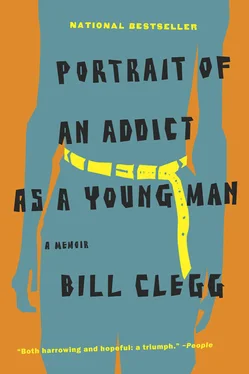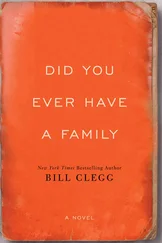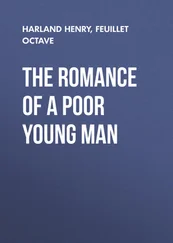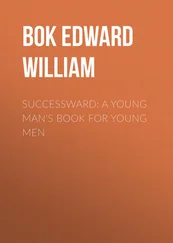I start an outpatient program that I never finish, follow the suggestions to stay sober that I was given at rehab and then don’t, talk on the phone a few times to my roommate and some of the other guys — the ones who just weeks before felt like family — and then, within the first month at home, lose touch with them all.
I think I have it licked. I throw myself into my job, the agency, the writers I represent, and the storm of work seems like something that I can hide in, that will protect me from temptation. I watch people drink at dinners and parties and, at first, am relieved I don’t have to anymore. As months pass, though, I grow resentful. Little fantasies of getting high will start to appear like thought bubbles in cartoons, when I am alone, mainly, and at the end of long workdays, days when I have had little sleep the night before or missed lunch and am light-headed with hunger. In October I find an old crack pipe stuffed in the pocket of a blazer hanging in our bedroom closet. I hide it in various places and circle the thing like a hawk for weeks until I finally scrape it clean of its old residue and take a hit. I feel only the faintest gust of a high, which quickly dies with the panic that I’ve relapsed. It’s over just as it starts, and Noah walks in right after it happens and agrees to tell no one. I hide the stem, bring it to my office, and somehow misplace it. I worry for weeks that someone there — my assistant, Kate, the cleaning woman — has found it and is waiting to confront me. No one ever does.
And then, seven months later, just before going to Park City, Utah, for the Sundance Film Festival, I have a plan to meet Noah for a sushi dinner at Japonica. On the morning of the day before that dinner, the thought of getting high bubbles up, but instead of flicking it away as I usually do, this time I don’t and it lingers. And it lingers long enough for me to ask: Why not? Noah is leaving tomorrow and I’ll have almost two full days in the city alone. I’ve been working hard, everything is going well, no one will suspect a thing. Within seconds I’m on my cell phone, calling Stephen for the first time in almost a year. We’d stopped using him to bartend our parties, but despite being advised at rehab to erase all drug-related numbers from my cell phone, I still have his. He picks up on the first ring and we make a plan to meet later, on the corner outside my office building. At six I go downstairs and see him leaning against the building. He’s skinnier than I remembered, older. I barely say hello, though he seems eager to hang out. I give him $400 to score and $200 for doing the dirty work and agree to meet him the next day. As much as I don’t want to reconnect with Stephen, scoring through him somehow feels less wrong. As long as I don’t start up with the dealers again, I reason, if I don’t remember their numbers, this tiny treat will be just a one-time-only thing, an anomaly, a harmless but needed vacation.
I meet Stephen on the same corner the next day, tingling with anticipation. This time he’s all business. He hands me a small brown paper bag filled with drugs and stems. I thank him and hurry away, back to my office.
I plan to smoke the bags the next night, after Noah leaves, a day and a half before I join him in Utah for the premiere of his movie. This can work, I think, this will be just a little release, a little nothing, a harmless blowing off of steam. In the swarm of faulty reasoning I still know this will end badly, that it always does, and that I’m loading a gun and pointing it at my temple. But that voice, instead of being a deterrent, becomes part of the persuasion. On the other side of this bag is either a groggy day and a no-harm-done return to life or some kind of apocalypse. Lose nothing or lose everything. And losing everything sounds like a relief.
I return to the office and make some phone calls, say good-bye to my colleagues as they leave, and see that I have two hours before I’m to meet Noah for dinner. Two hours. Just one hit now would wear off before then. Why not? I get up from my desk and lock the office door. I find a lighter in my assistant’s desk drawer, sit down at my desk, take the drugs from my jacket pocket, and hold the two little baggies in my hand. I pull out the clean, clear stem — so much lighter than I remembered. It feels like a dream as I split off a little creamy chunk of crack and load it into the end of the stem. It doesn’t seem as if it’s actually happening when I spark the lighter and move the flame toward the pipe. It doesn’t feel the least bit wrong in those first seconds after exhaling the familiar smoke, no more than a reunion with an old friend, a returning to the most incredible conversation I’ve ever had, one that got interrupted seven months ago and, now that it’s started up again, hasn’t skipped a beat. But it’s more than just a conversation, it’s the best sex, the most delicious meal, the most engrossing book — it’s like returning to all of these at once, coming home, and the primary feeling I have as I collapse back into my desk chair and watch the smoke roll through my office is: Why on earth did I ever leave?
I sit at my desk for three hours, smoking down one of the bags, and finally race out, suddenly panicked, to Japonica, to Noah, whom I was supposed to meet an hour ago. I run into the restaurant and see him sitting at a table, his back to the wall, clearly worried, and when he sees me, he goes white and begins weeping. I remember his weeping. I lie to him and say I got caught on a phone call at work, that I didn’t hear him ringing my cell or the landline at the office, and that it’s all okay, don’t worry, stop crying. He sleeps on the couch that night and leaves quietly in the morning, asking only one thing: Will I make it to Sundance? And I say, yes, yes, of course. I promise.
And I do make it. But I stay only one night, the night of his premiere and the party after with his friends and producers and family. I smile and nod and engage and play the part of a supportive boyfriend. But I’m fixated on the little zip-lock bag wrapped in tissue nestled in the pocket of my navy blazer hanging in the bedroom closet at One Fifth. I imagine the clear glass stem resting next to that bag, and the lighter on the dresser nearby. I picture these things every second I’m in Utah. From the moment I get there I need to leave. From the second I leave New York I need to return, to get back to that conversation, the one that just started up again; and now that it has, nothing but death can keep me from it.
I need a new sweater. I need to clean up before I try to check into another hotel. It is evening but some stores may still be open. I get in a cab and ask the driver to go to SoHo. He hums as he drives and I can’t bear looking to see if his license photo is obscured by cardboard or paper or just not there, like all the others. Here okay? he asks, as he pulls to the corner of Houston and Wooster. I shove $10 in the money slot and don’t bother looking at the fare.
The stores south of Houston look like Christmas. Extraordinary displays — animated, art-directed, intelligently lit — beckon and intimidate from the windows along Wooster. I remember, as a kid, coming into the city with my fourth-or fifth-grade class to see the Radio City Music Hall Christmas show. The streets in midtown were jammed with tourists and city people, and they were lined up by the hundreds to see the decorated windows of Saks Fifth Avenue and Lord & Taylor. I remember being confused about why the windows were important to see but also excited that I was involved in something famous, something big. It was the same feeling when we got to Radio City Music Hall. My mother told me it was the best theater in the whole world and that the Rockettes were the most beautiful, most talented performers anywhere, whom people came from around the world to see. When my class finally made its way through the crowds into Radio City I could barely breathe. We were here, in this place that people traveled from everywhere to be, where the Rockettes performed (what exactly they did I still had no idea). The gold fixtures and red carpeting exaggerated the dizzy Christmas-in-NY adrenaline pumping through me, and I remember literally shaking with excitement. At the top of the first set of stairs, there was a bank of pay phones. I made a beeline for the nearest one and dialed zero. I told the operater I wanted to call home, collect. The phone rang and no one answered. This was before answering machines. Before voice mail. So I hung up. But I was bursting and had to tell someone, had to put the excitement somewhere. So I picked up the phone and dialed the operator again — a different one answered this time — and immediately started gushing to her about where I was, what I could see, what I had already seen on this, one of my first trips into the city. I don’t remember anything about the performance that night but I always remember that call, the friendly operator, her kind voice, and how she told me to go find my teacher, to be careful not to get lost.
Читать дальше












